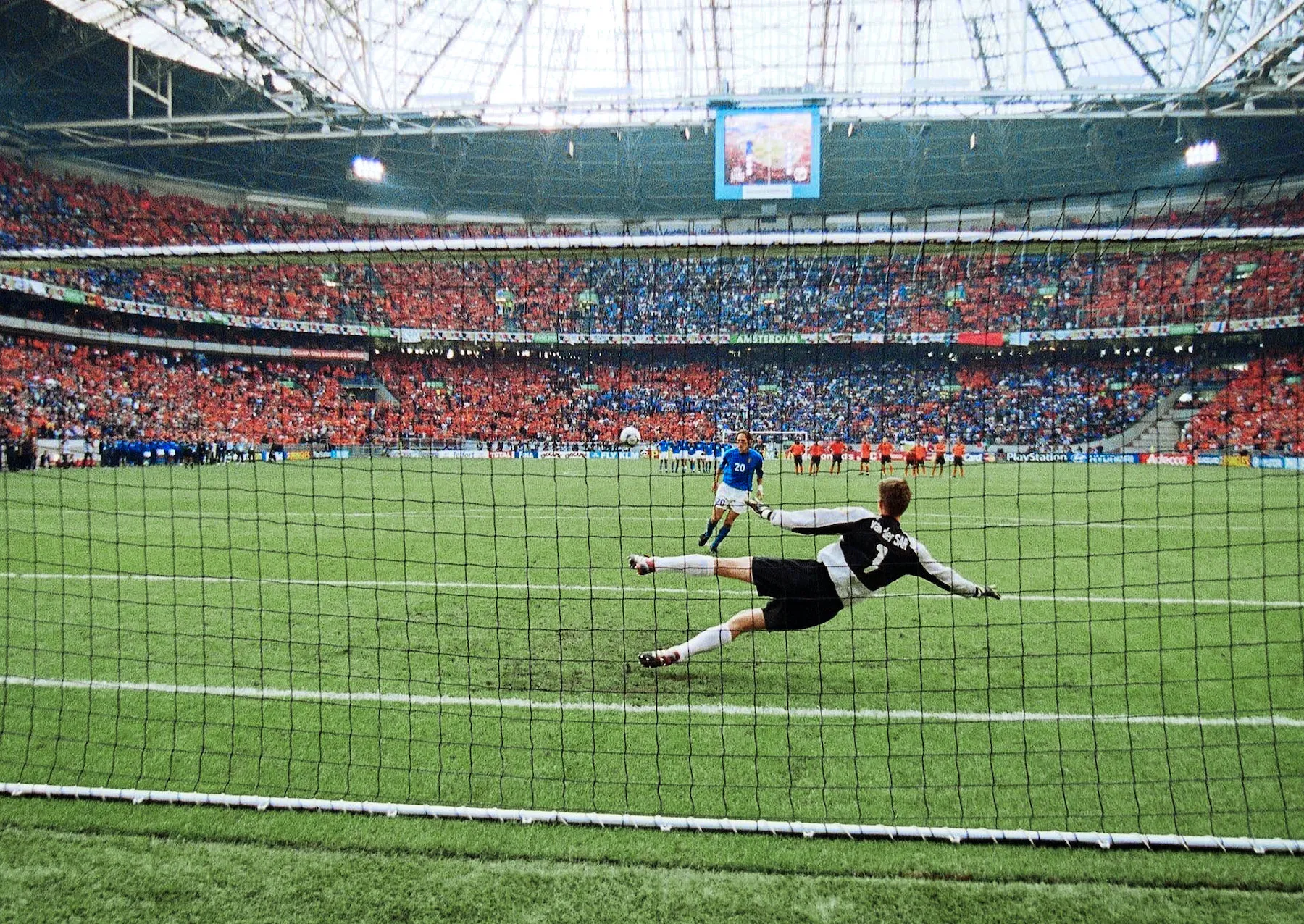By: Grace Liu
A penalty kick in soccer can make or break an entire game, and they are more complex than they seem. Goalkeepers have to react fast, and the kicker has to use a good strategy. Goalkeepers can achieve such fast reaction times by practicing, and using different strategies.
Goalkeepers need to defend a 24 foot wide 8 foot tall goal from a kick only 12 yards away with the ball traveling, on average, at 70 miles per hour. From the time where the kicker’s foot touches the ball, the ball takes around 400 milliseconds to reach the goal. Humans have a visual reaction time of around 200 milliseconds.
The goalkeeper’s dive also takes around 500 milliseconds. According to research, goalkeepers tend to have faster reaction times than other soccer players on the field, but penalty kicks at the professional level strain the limits of human reaction time. So, around 80 percent of penalty kicks successfully score.
In one analysis of penalty kicks, professional goalkeepers dove about 220 milliseconds before the kicker hit the ball. The more information the goalkeeper saw before the kick, the more likely they were to predict the shot’s direction.
It is up to the goalkeeper to choose what to do. If they wait longer, goalkeepers can get more information about the kick, but they have less time to react. If they dive sooner, they will have less information about the kick, but more time to save.
Just like a goalkeeper, the kicker has to make decisions as well. The kicker needs to decide where to aim the ball, how hard to kick and whether they want to use a strategy based on what they see the goalkeeper doing. Kicking faster means the goalie has less time to react, but the kick may be less accurate. But, taking the time to kick more carefully gives the goalie more opportunity to block the shot. Kickers can also try to trick the goalkeepers as well.
During a penalty kick, almost all of the pressure is on the kicker, as the goalkeepers are not expected to save the kick. Research found that anxiety also influences the result. When the situation is relaxed, the kicker is usually more calm, and they have a better chance of making the shot.
The goalkeeper may try to add more pressure and distraction by waving their arms to put off the kicker. To cope with this pressure, many kickers do breathing exercises and pre-kick rituals.
Penalty kicks have cost many countries a World Cup title, and there is more to them than it seems.
Link to article: https://eb18600f7bb2916037f5ee8e636ce199.cdn.bubble.io/f1691331773019x431325124213836500/The%20psychology%20behind%20penalty%20kicks%20and%20reaction%20time%20in%20the%20World%20Cup%20-%20The%20Washington%20Post.pdf











